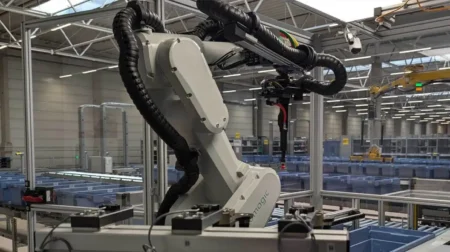A project by Imperial College London (ICL) that uses AI to help scientists better understand neurological diseases has been awarded funding of £5.5m.
The investment, from the UKRI EPSRC Transformative Healthcare Technologies for 2050 fund, will be put toward developing new technology known as Non-Invasive Single Neuron Electrical Monitoring (NISNEM).
Unlike human researchers, who currently perform invasive surgical implants, NISNEM uses electrical signals recorded on the skin surface from high-density electrode probes to create images of the brain.
AI algorithms then scan to find traces of individual neuron activities, which the team at ICL believes could reveal signs of neurological impairments such as stroke and Parkinson’s.
The researchers said they also hope the new system will detect other brain abnormalities assisting in early diagnosis of progressive diseases enabling new neurotechnology-based treatments.
Furthermore, these decoded neural activities could assist in the creation of brain-computer interfaces for use in patient therapy and assistance.
Professor Dario Farina, project team leader at ICL’s Department of Bioengineering, said: “The current inability to access single neuron activity in the brain not only limits our ability to understand and diagnose neurological conditions, but also prevents the broad adoption of neurotechnologies in healthcare.
“We hope our technology, funded by the EPSRC grant, will provide a breakthrough in understanding, diagnosing, and treating increasingly prevalent neurological conditions, such as stroke, Parkinson’s disease, and Alzheimer’s.”








